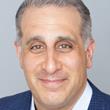“You don’t grow as a musician if you don’t grow as a human being,” says Panamanian-born pianist-composer Danilo Pérez. “For me, those two things are intertwined.
Tito Herrera
Jazz legend Herbie Hancock gave Danilo Pérez one of the greatest compliments of all: “He is not afraid of anything.” It means, presumably, that Pérez is always growing as an artist rather than settling into a comfort zone and sticking with what works.
That’s why the celebrated pianist, composer and humanitarian has made a very conscious effort to keep evolving both musically and experientially. “You don’t grow as a musician if you don’t grow as a human being,” he said during a recent conversation. “For me, those two things are intertwined. [That includes] being aware of who I am and my family — telling the story of my environment. So my muse has become more expansive.”
After years of playing with and learning from such jazz giants as Dizzy Gillespie and Wayne Shorter, Pérez launched a solo career in the early ’90s. Since then, his music has undergone a sonic metamorphosis from more conventional and melodic to esoteric and experimental.
One common thread is storytelling — interpreting, illuminating and ultimately improving the human experience in ways that mere words cannot. Another is exposing what Pérez considers the undervalued role of Latin America, and more specifically his native country of Panama, in the history of jazz.
Ahead of a Symphony Center Presents concert March 31 at Orchestra Hall — where he’ll appear with two of his longtime ensembles, the Global Messengers and Children of the Light, the latter with longtime collaborators John Patitucci and Brian Blade — Pérez touched on a variety of topics related to his life and music. Here’s more of what he had to say.
On music as a social connector
Dizzy Gillespie taught me that music is an incredible, powerful tool for diplomacy and bringing cultures together. And then [I spent] 20 years with Wayne Shorter, who said, “We are human before we are musicians. He knew all about my interest in the humanitarian side of what I do and said, “Danilo, you are a social activist. Just play and write music in the way you want the world to be,” and I’ve taken that as a strong mantra. The power of music is immediate connection and reaction. We can connect to the groove, to the rhythm, to the melody. That’s the power of humanization that music possesses. (This interview was conducted before the death of Wayne Shorter on March 2.)
On his foundation in Panama
I created a foundation in Panama that’s dedicated to the idea of music for social change. And we’ve been able to create a cultural event that this year, after 20 years, had more than 40,000 people participating in an outdoor concert. When music is given the space to be used in the most powerful way, to touch people, it does the work — especially when you have artists who believe that music is a tool for the betterment of society. Global jazz creates a common language to promote music as a virtual bridge between all people and cultures, and that’s really the intention of this Global Messenger project that we do.
On not giving up hope
We’re living in an era right now where it’s very tempting to think that there’s nothing we can do. As artists, we are responsible for reimagining a new world where we see light in the future, where we see purpose in living. There’s nothing we can take with us, so we might as well live in harmony. It is a privilege and a blessing [to do this], but it’s actually a responsibility for me. We’ve got to understand the role that we play in society and keep redefining the meaning of hope.
On music as therapy
Music ultimately has to be a therapeutic experience, and that’s how I approach what I do. Music is a form of performance therapy. I went to Panama to give my first concert in 1989. It was Dec. 22. The United States had invaded on Dec. 20 [to depose Gen. Manuel Noriega, indicted on U.S. drug charges]. But I decided to do the concert. We did it in the middle of the curfew and with tanks on the streets. That was the day I experienced the power of music as a therapeutic tool, because people who were pro or against the invasion came together. And for those three hours, we lived in a peaceful world. That’s when I said, “I will dedicate my life to this.”


